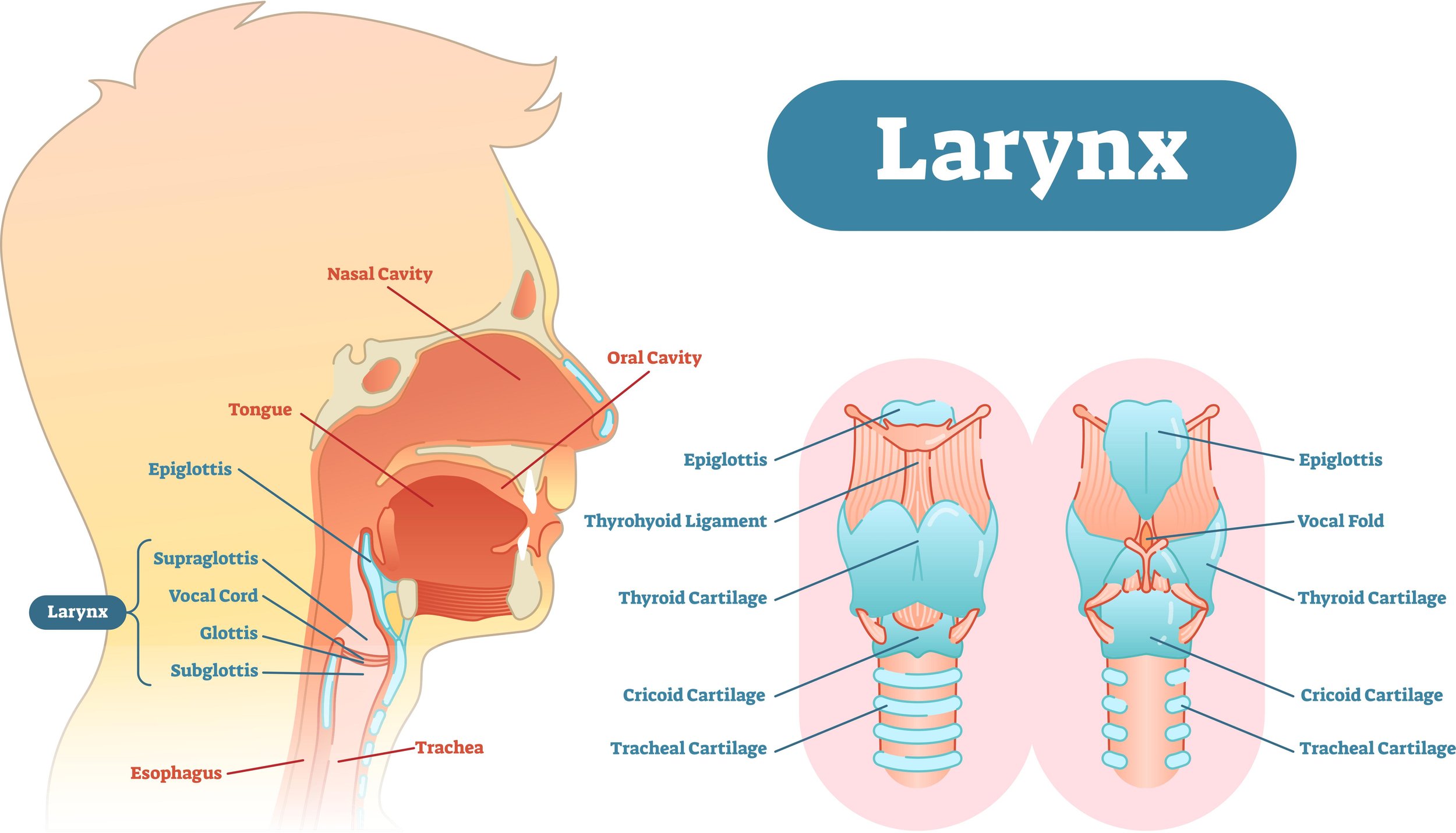Can PCOS Cause a Deeper Voice? The Science Behind PCOS Voice Changes
If you’ve noticed changes in your voice and have Polycystic Ovary Syndrome (PCOS), you’re not alone—and you’re not imagining it. Voice deepening is a lesser-known and understudied potential symptom of PCOS, and it’s something that many people assigned female at birth (AFAB) are starting to ask questions about.
In this article, we’ll explore the scientific research behind PCOS and voice changes, look at how hormones like testosterone affect the voice, and take a look at some real-life accounts from people who’ve experienced voice deepening.
Whether you’re a singer, speaker, or simply trying to understand your body better, here’s what you need to know.
What Is PCOS?
Polycystic Ovary Syndrome (PCOS) is a common hormonal disorder that affects about 1 in 10 people assigned female at birth. While its exact cause isn’t fully understood, PCOS is associated with an imbalance of reproductive hormones—particularly elevated levels of androgens, such as testosterone.
PCOS is typically diagnosed using the Rotterdam Criteria, which states that two out of the following three must be present:
Elevated androgens (hyperandrogenism)
Irregular or absent ovulation (oligo/anovulation)
Polycystic ovaries seen on ultrasound
It’s important to note that not everyone with PCOS has high testosterone levels, but for those who do, it may have effects throughout the body, including the voice.
Common Symptoms of PCOS
While symptoms vary, common signs of PCOS include:
Facial or body hair growth (hirsutism)
Hair thinning on the scalp
Acne or oily skin
Weight gain, particularly around the abdomen
Insulin resistance
Irregular periods or infertility
Voice deepening or vocal changes
While vocal changes aren't included in the typical diagnostic criteria, many people with PCOS report vocal symptoms.
How Hormones Affect the Voice
Hormones play a key role in vocal development and health. During an AMAB puberty, testosterone causes the vocal folds to thicken and lengthen, resulting in a deeper voice. Pitch can drop by an entire octave for men and those assigned male at birth.
In people assigned female at birth, estrogen and progesterone influence the voice more subtly. Voice changes may include a pitch drop of just a 3-4 semitones during puberty. However, hormonal fluctuations in adulthood also impact vocal function.
For instance:
PMS and the menstrual cycle can lead to vocal fatigue or loss of vocal range due to swelling of the vocal folds.
Menopause can cause voice deepening, dryness, and hoarseness due to decreased estrogen and relatively increased androgens.
If PCOS is associated with elevated androgens, it's reasonable to ask: Does PCOS cause voice deepening?
What the Research Says About PCOS and Voice Deepening
1. Vocal changes in patients with polycystic ovary syndrome, Hannoun et al., 2011
# of Participants: 17 PCOS patients vs. 21 controls
Findings:
PCOS diagnosed on the basis of three criteria: the presence of irregular menstrual cycles, hirsutism, and polycystic ovaries (didn’t check for hyperandrogenism)
76.5% reported throat clearing
47.6% reported voice loss
35.3% reported voice deepening
✅ Conclusion: Vocal symptoms, including deepened voice, were more prevalent in the PCOS group.
# of Participants: 24 PCOS cases vs. 10 controls
Findings:
Slight trend toward lower pitch, but not statistically significant
No major objective or subjective vocal differences
❌ Conclusion: Elevated androgens didn’t significantly affect vocal characteristics.
3. Voice characteristics associated with polycystic ovary syndrome, Aydin et al., 2016
# of Participants: 30 PCOS patients vs. 22 controls
Findings:
Higher androgen levels in PCOS group
Abnormal laryngeal findings in 56.7% of PCOS participants
Increased muscle tension and impaired vocal fold vibration
🟡 Conclusion: Despite normal acoustic measures, physical vocal abnormalities were present in many with PCOS, which may impact professional voice users.
4. Voice analysis in women with polycystic ovary syndrome, Abd El-hakeem et al., 2024
# of Participants: 25 PCOS patients vs. 25 controls
Findings:
80% of PCOS patients experienced voice deepening
Vocal fold congestion, hypertrophy, and shorter maximum phonation times observed
✅ Conclusion: Strong evidence of vocal impact in PCOS patients with elevated androgens.
Real-Life Experiences: What People Are Saying
Beyond clinical studies, anecdotal reports from people with PCOS provide valuable insight. On forums like Reddit, many have shared their experiences with PCOS and vocal changes:
“My voice is deeper and husky sounding... I get called ‘sir’ on the phone often.”
“My doctor confirmed my low voice might be related to PCOS. I try to embrace it, but sometimes I struggle with how I sound.”
While not scientific data, these lived experiences mirror the symptoms described in recent studies—especially when elevated testosterone is involved.
Key Takeaways
PCOS is highly individualized—not everyone will experience elevated testosterone or vocal changes.
For those who do, increased androgens may contribute to voice deepening, vocal fatigue, or altered vocal fold function.
Hormones clearly impact the voice—at puberty, during the menstrual cycle, and beyond
If you’re noticing vocal changes and have PCOS, especially if you’re a professional voice user or singer, it’s wise to consult both an endocrinologist and a laryngologist.
Are There Voice Exercises That Help?
Yes. If you’re dealing with voice changes related to PCOS and want to explore vocal feminization techniques or voice strengthening exercises, a gender-affirming voice coach can help. Whether you want to raise pitch, reduce vocal strain, or feel more confident in your speaking voice, there are tools and practices that can support you.
Need Support with Vocal Changes?
If you're experiencing vocal changes related to PCOS or elevated androgens, I offer gender-affirming voice coaching to help you feel more in control of your voice—without judgment.
Whether you're seeking a more feminine voice or simply want to strengthen your vocal health, you're not alone in this journey.























